Management Report for Operational Resilience Implementation
Plan-Implement-Sustain Phase
Table of Contents
Welcome to the "Management Report for Operational Resilience Implementation" section of Operational Resilience in Action: A Practical Guide for OCBC Bank.
This page is the central hub for accessing all blogs related to the third instalment of the eBook series. It is explicitly designed for OCBC Bank’s operational resilience practitioners, senior management, and oversight committees to track, review, and understand the structured reporting process throughout the Plan, Implement, and Sustain phases.
Each blog post represents a key element of the reporting journey, aligning with the 3 phases and 15 stages of OCBC’s Operational Resilience Planning Methodology.
The content supports Operational Resilience Team Leaders in preparing clear, structured, and actionable reports to management, ensuring transparency, alignment with regulatory expectations, and continuous progress throughout the implementation lifecycle.
This table of contents page provides easy access to all blogs forming the third part of Operational Resilience in Action: A Practical Guide for OCBC Bank.
This section, focused on management reporting, outlines how resilience efforts are tracked, reported, and communicated to senior stakeholders.
By following the sequence of the blogs, readers will gain practical insights into how the Operational Resilience Team Leader systematically reports on the progress of each phase (Plan, Implement, and Sustain) and its five stages.
The structure ensures that management is regularly informed, data and assessments support key decisions, and operational resilience becomes an embedded, visible priority within the Bank.
More Information About Blended Learning OR-5000 [OR-5] or OR-300 [OR-3]
To learn more about the course and schedule, click the buttons below for the OR-3 Blended Learning OR-300 Operational Resilience Implementer course and the OR-5 Blended Learning OR-5000 Operational Resilience Expert Implementer course.
 |
 |
 |
 |
 |
![[BL-OR] [3-4-5] View Schedule](https://blog.bcm-institute.org/hs-fs/hubfs/hub_generated/resized/e4287b59-1a43-4e10-8e43-c73b27b3ca39.png?width=172&height=50&name=e4287b59-1a43-4e10-8e43-c73b27b3ca39.png) |
![[BL-OR] [3] FAQ OR-300](https://blog.bcm-institute.org/hs-fs/hubfs/hub_generated/resized/294e989f-8613-4bf3-96a5-a89408cfb9ca.png?width=150&height=150&name=294e989f-8613-4bf3-96a5-a89408cfb9ca.png) |
 |
|
 |
 |
 |

![BB OR [D] 2 BB OR [D] 2](https://blog.bcm-institute.org/hs-fs/hubfs/OR%20picture/OR%20Pictures%20A/BB%20OR%20Folder%20D/BB%20OR%20%5BD%5D%202.jpg?width=2000&height=1333&name=BB%20OR%20%5BD%5D%202.jpg)


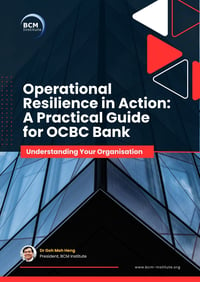
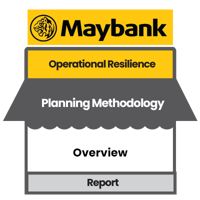
![[OR] [MB] [E3] [Report] [P1] [C2] Five Stages of the "Plan" Phase](https://no-cache.hubspot.com/cta/default/3893111/d0c388a1-5b67-4942-8b75-95da3c55de19.png)
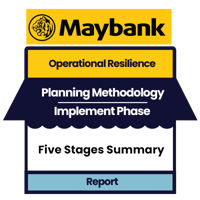
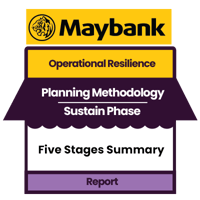
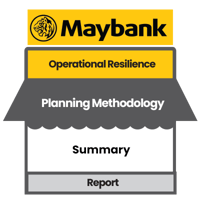
![[OR] [MB] [E3] [Report] [P1] [S1] [C3] Assessing Capability and Maturity](https://no-cache.hubspot.com/cta/default/3893111/8d1df6d2-99fb-4fea-bbc9-f98d24175141.png)
![[OR] [MB] [E3] [Report] [P1] [S2] [C4] Analysing Gap](https://no-cache.hubspot.com/cta/default/3893111/0544e78e-6753-43c0-ae72-5cadcb1a5ae4.png)
![[OR] [MB] [E3] [Report] [P1] [S3] [C5] Developing Strategy and Roadmap](https://no-cache.hubspot.com/cta/default/3893111/94484c48-74e1-4053-9a53-c1df7524e82f.png)
![[OR] [MB] [E3] [Report] [P1] [S4] [C6] Confirming Risk Appetite](https://no-cache.hubspot.com/cta/default/3893111/82afded9-a96c-4a55-b9db-9d7609044c69.png)
![[OR] [MB] [E3] [Report] [P1] [S5] [C7] Developing and Embed Governance](https://no-cache.hubspot.com/cta/default/3893111/734568b2-ad39-4e14-a628-4901c295bcac.png)

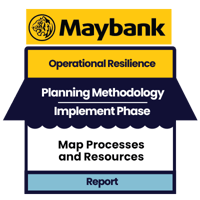
![[OR] [MB] [E2] [Report] [P2] [S3] [C11] Setting Impact Tolerance](https://no-cache.hubspot.com/cta/default/3893111/b102f5f2-41c8-4fc6-b075-73d13286f281.png)


![[OR] [MB] [E2] [Report] [P3] [S1] [C15] Introducing Cultural Change Management](https://no-cache.hubspot.com/cta/default/3893111/866b758e-7882-441b-9271-d16e27e485c9.png)




![Email to Sales Team [BCM Institute]](https://blog.bcm-institute.org/hs-fs/hubfs/hub_generated/resized/850988ce-aa7d-4953-95cf-797635341edd.png?width=100&height=100&name=850988ce-aa7d-4953-95cf-797635341edd.png)

